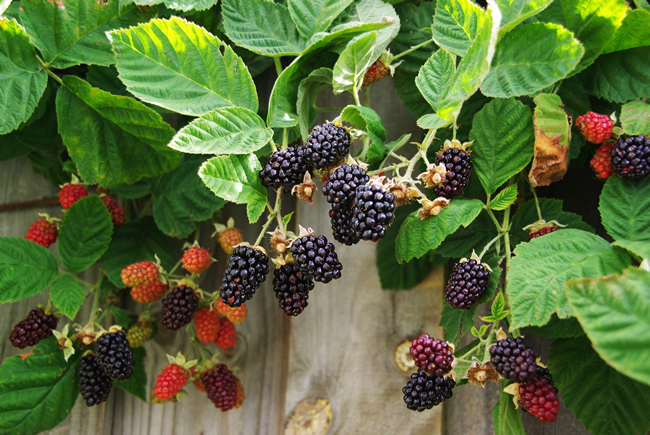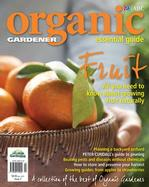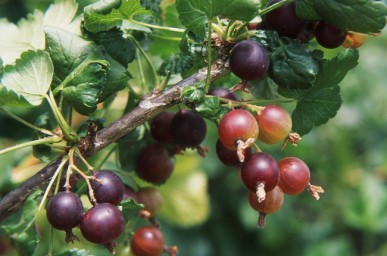Jostaberries (Ribes nidigrolaria) – and pronounced ‘yustaberries’ – are a genetic cross between black currants (Ribes nigrum) and gooseberries (Ribes grossuaria).
This thornless plant which resembles black currant in growth, but with leaves similar, yet larger than the gooseberry was developed by Dr Rudolph Bauer at Max-Planck Institute in Cologne Germany around 1970.
Jostaberries are more vigorous than their parent plants and can be easily propagated from cuttings at the time of pruning or can also be layered, though they do not tend to sucker.
Jostaberries are self fertile, do best in colder areas and will not fruit in warm districts. Leaves are not susceptible to powdery mildew, fungal dieback, currant bud mite and white pine blister. Jostaberries prefer moist well drained soils in full sun, produce small clusters of flowers borne on at least one year-old branches, followed by green berries with underskin veining resembling its gooseberry parent. Read more
Article and photos by Gail Thomas
 Marionberries are one of the most luscious summer fruits, and although the plants are thorny the resulting delicious fruit far outweighs any prickly encounters! A cross between the Chehalem and Olallieberry blackberries, this vigorous trailing cane blackberry cultivar is named after the county of Marion Oregon where they were developed in the 1950’s. Read more
Marionberries are one of the most luscious summer fruits, and although the plants are thorny the resulting delicious fruit far outweighs any prickly encounters! A cross between the Chehalem and Olallieberry blackberries, this vigorous trailing cane blackberry cultivar is named after the county of Marion Oregon where they were developed in the 1950’s. Read more
 Organic Gardener Essential Guide: Fruit
Organic Gardener Essential Guide: Fruit
This mook (a cross between a magazine and a book) is the second in the series produced by Organic Gardener Magazine. It is made up of articles by well-known garden writers from across Australia. Some articles have been previously published by Organic Gardener, others are written specifically for this mook. There is everything from pruning (an article I keep going back to, to check how it should be done) by Peter Cundall to pest control by Jerry Coleby-Williams and planning the orchard by Phil Dudman. It also looks at harvesting and storing the produce. The fruits covered include apples, avocado, bananas, berries, citrus, grapes, mangoes, melons, nuts, olives, passionfruit, stone fruit and strawberries. Comprehensive and cheap at only $10.
Borrow a copy from your library, buy one from your local newsagent or go to the store on this website and buy a copy online

